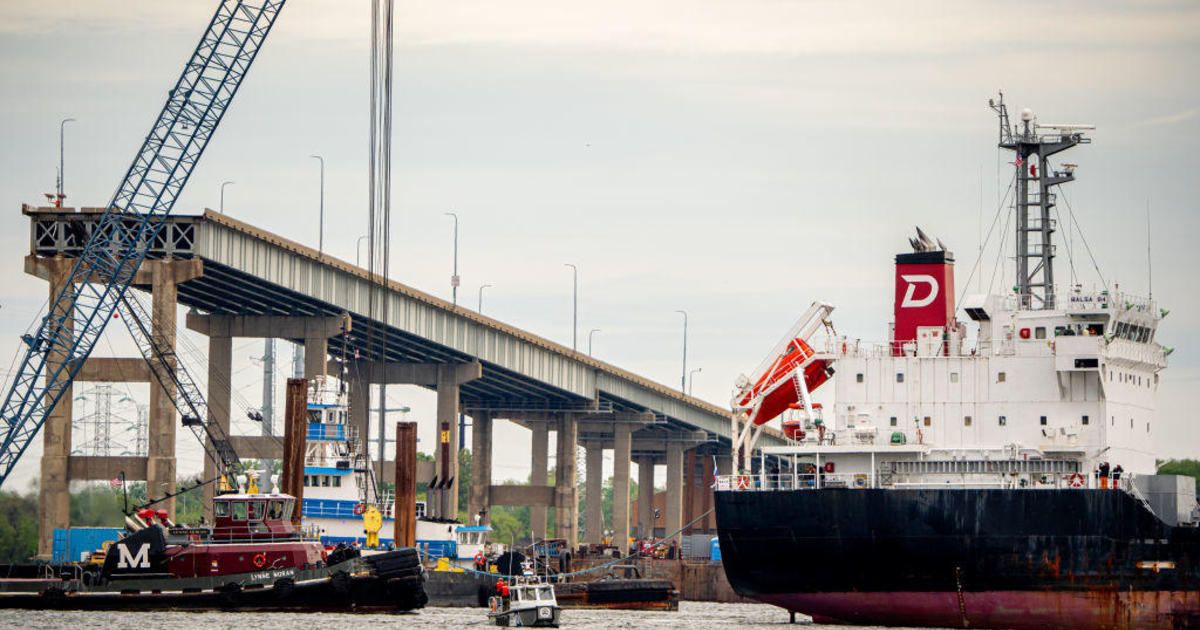Court Considers Gas Exports At Md. Terminal
By MAX EHRENFREUND
The Washington Post
ANNAPOLIS, Md. (AP) -- The future of a massive, controversial construction project on the Chesapeake Bay for exporting natural gas could depend on one poorly written sentence.
Attorneys for the Sierra Club were in court last week fighting the $3.8 billion proposal by Dominion Resources to renovate its terminal in Calvert County so the facility could send domestic gas overseas. The case -- which turns on several words in a contract first signed in 1972 and rewritten over the years -- is pending in the Maryland Court of Special Appeals.
Labor and business leaders argue that construction would bring a huge influx of capital to a state still recovering from the financial crisis. But environmentalists say that the project would worsen global warming, and residents are concerned about the effects on traffic and property values in the sleepy coastal community of Lusby about 60 miles southeast of the District.
"We are all following it really closely," Kelly Canavan, president of a local community organization, said of the dispute between the Sierra Club and Dominion.
Canavan's group, the Accokeek, Mattawoman, Piscataway Creeks Communities Council, opposes Dominion's plans. She said the court case "is one of the strongest possibilities for actually stopping the project."
The case also demonstrates how radically the global energy economy can change in just a few years.
Dominion's Cove Point terminal, which began operating in 1978, was built to receive imported natural gas. But recently, few tankers have come through as the new drilling techniques commonly known as "fracking" have produced an unexpected glut of domestic shale gas.
Dominion now proposes to use Cove Point for export instead of import. But natural gas must be cooled into a liquid before it is loaded onto a tanker. Dominion will have to build cooling facilities at Cove Point -- a project that would require three years and thousands of workers.
Environmental groups, including the Sierra Club -- which aims to decrease the country's reliance on natural gas -- worry that allowing the exports would encourage domestic drilling, damage the ecology of the bay and ultimately hasten climate change.
Whether the project proceeds could depend on how the court interprets the contract, which curtails how the site can be used. The facility's original owner, Columbia Gas, initially signed the agreement with the Sierra Club and another environmental group. Relations between business and the environmental movement were friendlier then than they are today, and Columbia wanted to avoid a legal dispute.
Sierra argues that the most recent version of that agreement, which Dominion signed in 2005, a few years after acquiring the property, precludes the company from exporting natural gas from Cove Point by sea.
The agreement provides that Dominion can use the site for "receipt by tanker and the receipt or delivery by pipeline" of natural gas in its various forms.
According to the environmental group's lawyers, that phrase means that Cove Point can receive shipments of natural gas by sea or overland via pipeline, and that it can deliver gas to domestic customers, also via pipeline. Delivering gas to outgoing vessels is not permitted, they argue.
A lower court ruled against the Sierra Club last year. Circuit Judge James Salmon agreed with Dominion that the facility could make a "delivery by pipeline" to the pier where deep-water tankers dock.
The offshore pier, just over a mile from the coast, is indeed connected to land by an insulated pipeline along the bottom of the bay.
The Sierra Club appealed the decision.
The parties to the contract in 2005 did not anticipate that Dominion would ever need to export natural gas. During arguments Wednesday, appeals court judges questioned attorneys for both sides on economic and technological aspects of shipping gas at that time, trying to reconstruct a world that already seems far in the past.
Dominion has signed contracts with importers in India and Japan, who agreed to buy capacity at Cove Point for 20 years. The company asked the court to rule quickly on the case, citing the volatility of the global market for fossil fuels.
For those who live near the facility, the debate about Cove Point is much more than a disagreement over the meaning of "receipt or delivery."
Carolyn Hart, president of the Calvert County Chamber of Commerce, said her group's members are eager for the jobs and people they expect construction to bring to the area. "I can tell you, we're waiting," she said. Hart lives a quarter of a mile from the terminal, and she and her husband own a nearby wine shop.
Dominion said they are among many people who think the project will benefit the community. "The support for this kind of a project is extremely broad and very deep," said Chet Wade, a spokesman for Dominion.
Others worry about the risk of an industrial accident.
"We feel like Dominion is transferring environmental and health risks to their neighbors, and we're not getting compensated," said Sue Allison, who can see Cove Point's storage tanks from her kitchen window and made the trip to the courthouse in Annapolis to demonstrate her opposition to the project.
Information from: The Washington Post, http://www.washingtonpost.com
(Copyright 2013 by The Associated Press. All Rights Reserved.)



